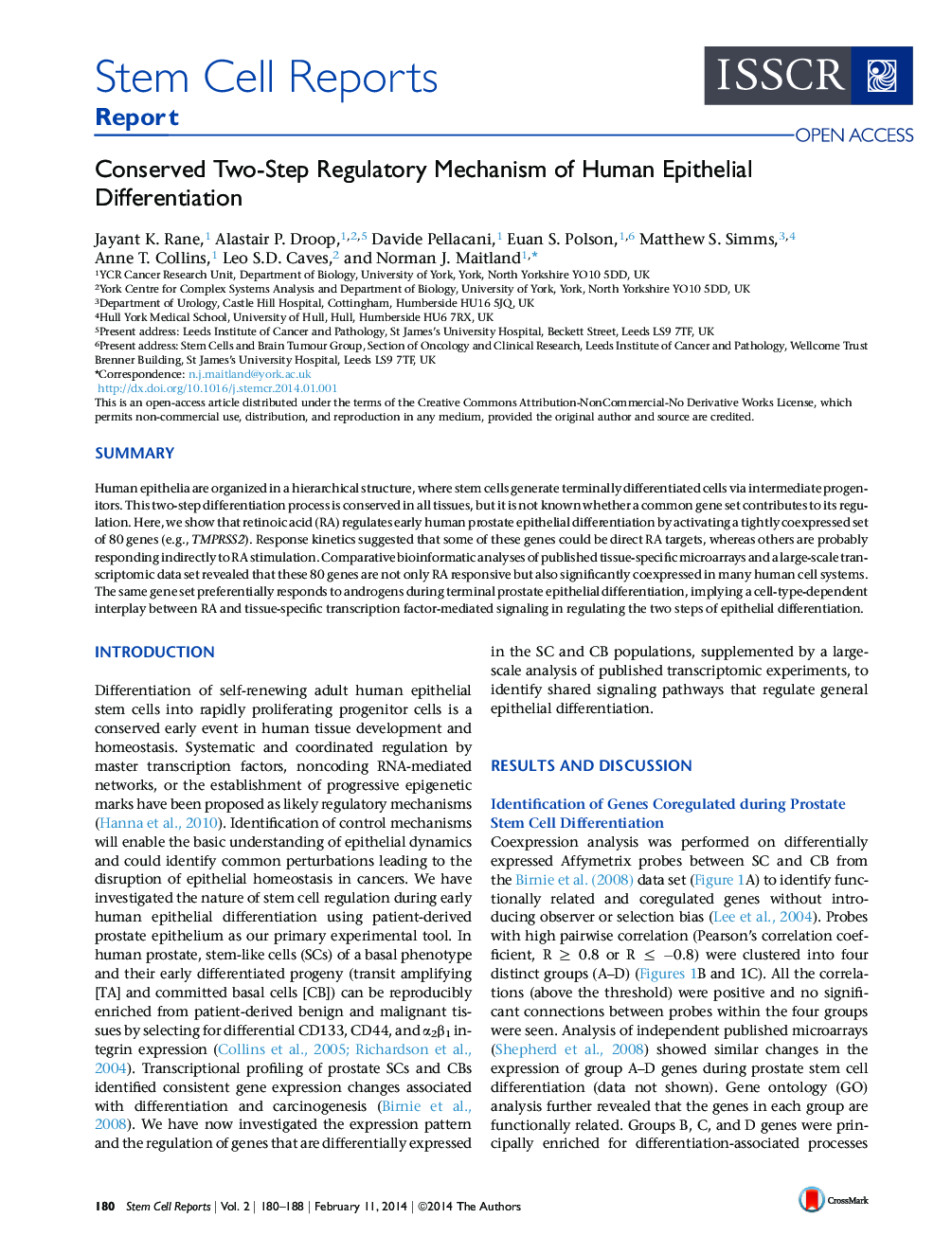| Article ID | Journal | Published Year | Pages | File Type |
|---|---|---|---|---|
| 2093463 | Stem Cell Reports | 2014 | 9 Pages |
•Four sets of coexpressed genes mark primary human prostate stem cell differentiation•These gene sets are also tightly coexpressed in >150 human cell types•Retinoic acid induces early differentiation while upregulating one of the gene sets•Androgens preferentially regulate the same gene set during terminal differentiation
SummaryHuman epithelia are organized in a hierarchical structure, where stem cells generate terminally differentiated cells via intermediate progenitors. This two-step differentiation process is conserved in all tissues, but it is not known whether a common gene set contributes to its regulation. Here, we show that retinoic acid (RA) regulates early human prostate epithelial differentiation by activating a tightly coexpressed set of 80 genes (e.g., TMPRSS2). Response kinetics suggested that some of these genes could be direct RA targets, whereas others are probably responding indirectly to RA stimulation. Comparative bioinformatic analyses of published tissue-specific microarrays and a large-scale transcriptomic data set revealed that these 80 genes are not only RA responsive but also significantly coexpressed in many human cell systems. The same gene set preferentially responds to androgens during terminal prostate epithelial differentiation, implying a cell-type-dependent interplay between RA and tissue-specific transcription factor-mediated signaling in regulating the two steps of epithelial differentiation.
Graphical AbstractFigure optionsDownload full-size imageDownload as PowerPoint slide
